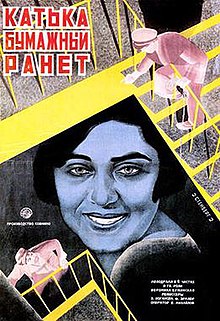경제과학의 본질과 의의에 관한 논문
An Essay on the Nature and Significance of Economic Science리오넬 로빈스의 에세이(1932, 1935, 2부 158쪽)는 경제학을 과학으로 보다 정확하게 정의하고 실질적인 시사점을 도출하고자 했다. 분석은 특히 필립 위크스테드, 루트비히 폰 미제스, 기타 유럽 경제학자 등의 작품을 포함하여, 참조된 최상의 현대적 관행에 기초한 "특정 문제의 수용된 해결책"과 관련된다. 로빈스는 독창성을 부인하지만 "항상 명시되지 않은" 몇몇 원칙들에 대해 설명적인 힘을 주었기를 희망한다(1935, 페이지 xiv-xvi)[1]
주요 명제
로빈스는 희소성과 경제학과의 관계와 과학과의 경제 이론에 관한 몇 가지 명제를 개발하고 옹호한다. 여기에는 다음과 같은 것들이 포함된다.[2]
- "경제학은 대안적 용도를 가진 목적과 희소한 수단 사이의 관계로서 인간의 행동을 연구하는 과학이다."(1935, 페이지 15)
- "경제학은 특정한 종류의 행동에 관한 것이 아니라, "행동의 특정 측면, 희소성의 영향에 의해 부과되는 형태" (pp. 16–17)
- "경제학은 목적 사이에 완전히 중립적이다; 어떤 목적도 희소한 수단에 의존하는 한, 경제학자 선취는 더 유리하다."(24 페이지)
- "[W]alth는 상당한 재산 때문에 부가 아니다. 부족하기 때문에 재물이다.(p.47)
- "소멸하는 한계효용성의 법칙 ... 참이든 거짓이든 관찰이나 자기성찰로는 결코 검증할 수 없다."… [아니오도 그렇지 않다] "부자로부터 빈곤층으로의 전이가 총체적인 만족을 증가시킬 것이라는 추론을 정당화하면... 윤리적 풍조의 발달로서 흥미롭지만, [그런 효과]는 순수 이론의 긍정적인 가정으로부터 전혀 따르지 않는다." (pp. 137, 141)[3]
- 과학으로서의 경제학은 경제 정책에 대한 규범적(윤리적) 판단과는 구별되는 긍정적인 것에 대한 "확실한 사실"에 관한 것이다. ( 페이지 148).[1]
The definition of economics above has been described as "central to the arguments presented" that followed in the Essay[4] and as redefining economics in marginalist terms and thereby "destroy[ing] the view classical economists had of their science."[5] Robbins argued that, at a certain stage in the development of the subject, an insufficiently restrictive and unifying definition multiplies activities of economists away from filling in explanatory gaps of the theory and solving problems posed by the subject (pp. 3–4).
The Essay has been described as different from earlier writings on economic methodology in generating a range of tightly-argued, radical implications from a simple definition, for example in admitting an aspect of behaviour (rather than a list of behaviours) but not limiting the subject-matter of economics, provided that the influence of scarcity impinges on these (pp. 16–17). The broad behavioural definition is credited for its consistency with the expanding boundaries of economics decades later. In this Robbins both narrows the definition of economics, thereby demonstrating the usefulness of deduction, and opens up the subject-matter of economics.[6][5]
Influence
Robbins's Essay is one of the most-cited works on the methodology and philosophy of economics for the period 1932-1960. Arguments therein have been widely accepted on the demarcation of economics as science from discussion of recommendations on economic policy.[7] In that period, economists started referring to Robbins' definition of economics therein as generally accepted, along with continuing controversy that accompanied its blending into economics texts. With the application of the economic methods to social and other "non-economic" problems, acceptance of Robbins' expansive subject-matter definition in economics texts increased its prominence.[6]
See also
Notes
- ^ a b Lionel Robbins (1932, 1935, 2nd ed.). An Essay on the Nature and Significance of Economic Science, London: Macmillan. Links for 1932 HTML and 1935 facsimile.
- ^ D. L. Sills and R. K. Merton, ed., 2000. Social Science Quotations (description), pp. 198-99, also published in 1991 as The Macmillan Book of Social Science Quotations and as International Encyclopedia of the Social Sciences, v. 19.
- ^ Discussed further in Lionel Robbins, 1938, "Interpersonal Comparisons of Utility: A Comment," Economic Journal, 48(192), pp. 635-641.
- ^ Roger E. Backhouse and Steven G. Medema (2009). "Defining Economics: The Long Road to Acceptance of the Robbins Definition," Economica, 76(302), pp. 805-806. [805–820.
- ^ a b Peter Groenwegen (1987). ([2008]). "'political economy' and 'economics'", The New Palgrave: A Dictionary of Economics, v. 3, pp. 905-06, including a citation of Hla Myint (1948), Theories of Welfare Economics, Longmans Green.
- ^ a b • Roger E. Backhouse and Steven G. Medema (2009). "Defining Economics: The Long Road to Acceptance of the Robbins Definition," Economica, 76(302), Conclusions. [805–820.
• George J. Stigler, 1984. "Economics—The Imperial Science?" Scandinavian Journal of Economics, 86(3), pp. 301-313. - ^ B. A. Corry (1987 [2008]). "Robbins, Lionel Charles," The New Palgrave: A Dictionary of Economics, v. 4, p. 207 [pp. 206-08].
References
- Daniel M. Hausman (2003). "Philosophy of Economics," Stanford Encyclopedia of Philosophy
- Susan Howson (2004). "The Origins of Lionel Robbins's Essay on the Nature and Significance of Economic Science," History of Political Economy, 36(3), pp. 413–443. (excerpt.)
- Terence W. Hutchison (1938). The Significance and Basic Postulates of Economic Theory.
- Richard G. Lipsey (2009). "Some Legacies of Robbins’ An Essay on the Nature and Significance of Economic Science," Economica, 76(302), pp. 845-56 (press + button).
- Roger E. Backhouse and Steven Medema, 2008. "economics, definition of," The New Palgrave Dictionary of Economics, 2nd Edition. Abstract.
- Roger E. Backhouse and Steven Medema, (2009), Defining Economics: The Long Road to Acceptance of the Robbins Definition. Economica, 76: 805–820. doi:10.1111/j.1468-0335.2009.00789.x Accessed at [1] on December 29, 2017.


